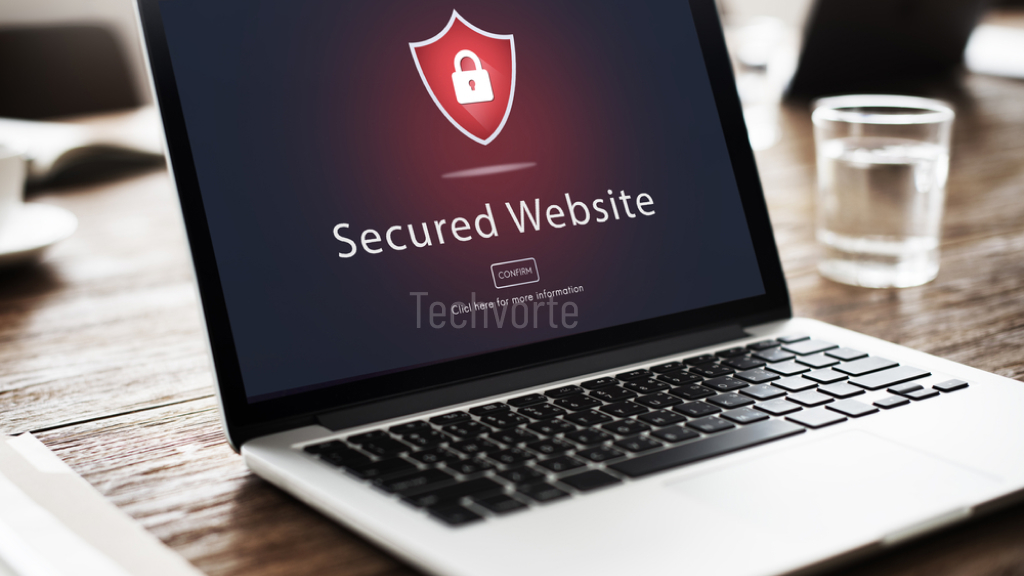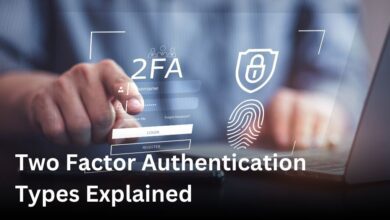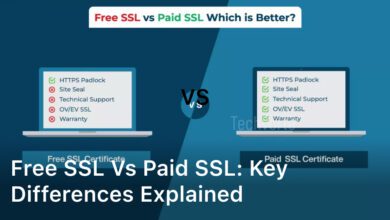Welcome to an essential discussion on website security and why it should be a top priority for any online presence.
In today’s digital landscape, where cyber threats are on the rise, ensuring the security of your website is paramount.
Whether you are a business or an individual, website security is crucial for safeguarding your valuable data and protecting your customers from potential harm.
Why should you care about the importance of website security?
Hacked Websites Can Target Your Customers
Having a hacked website can have detrimental consequences, particularly when it comes to the security of your customers or users.
When a website is compromised, hackers can gain unauthorized access to sensitive information, putting your customers’ personal data, financial details and login credentials at risk.
This not only poses a significant threat to their privacy but can also lead to identity theft and financial loss.
Implementing proper website security measures is crucial to protect your customers from these potential dangers.
By following website security best practices, such as regular security audits, keeping software and plugins up to date and using strong passwords, you can significantly reduce the risk of a successful cyber attack.
Additionally, employing techniques like encryption and secure protocols, such as HTTPS, can ensure the safe transmission of data between your website and your customers’ browsers.
It’s essential to remember that your customers entrust you with their information when they visit your website.
By prioritizing website security, you demonstrate your commitment to safeguarding their data and fostering trust.
This not only protects your customers but also preserves your reputation as a reliable and responsible business.
The Rapidly Rising Number of Hacked Sites

In today’s digital landscape, the threat of cyber attacks targeting websites is higher than ever before.
Hackers are constantly evolving their tactics, searching for vulnerabilities to exploit and wreak havoc on unsuspecting businesses and individuals.
The alarming increase in the number of hacked sites highlights the urgent need for heightened website security measures.
The Growing Menace
- Recent statistics show a staggering rise in the number of hacked websites, posing a significant challenge to online security.
- According to industry reports, there has been a 30% increase in hacked sites compared to the previous year.
- Cybercriminals employ sophisticated techniques to infiltrate websites, steal sensitive data, and carry out malicious activities.
Importance of Website Security
With the ever-increasing digital landscape, the importance of prioritizing website security cannot be stressed enough.
Protecting your website goes beyond safeguarding your data, it is about ensuring the trust and confidence of your users and customers.
By implementing comprehensive website security solutions, you can:
- Prevent Unauthorized Access: Robust security measures such as firewalls, strong passwords, and regular software updates can deter hackers and safeguard your website from unauthorized access.
- Protect Sensitive Data: Encryption technology and secure server configurations are essential in protecting sensitive information such as login credentials, payment details, and personal data.
- Maintain Reputation: A hacked website can lead to a tarnished reputation, eroding customer trust and loyalty. Prioritizing website security demonstrates your commitment to maintaining a safe online environment.
- Ensure Business Continuity: By taking proactive steps to secure your website, you can minimize the risk of downtime due to cyber attacks, ensuring uninterrupted operations and customer engagement.
- Comply with Regulations: Many industries have strict data protection regulations that businesses must adhere to. Implementing robust website security measures ensures compliance with these regulations, mitigating potential legal and financial risks.
As the number of hacked sites continues to rise, it is crucial for businesses and individuals to stay informed about the latest threats and invest in comprehensive website security solutions.
By taking proactive measures to fortify your online presence, you can protect your valuable data, maintain customer trust and mitigate the devastating consequences of a security breach.
Business Reputation Loss and Drop in Revenue
When it comes to website security, the potential consequences of a breach extend far beyond the technical realm.
A compromised website can significantly impact a business’s reputation and financial standing, leading to a loss of customer trust and loyalty, as well as a drop in revenue.
One of the most immediate and noticeable impacts of a website security breach is the negative effect it has on a business’s reputation.
Customers rely on websites to provide them with secure and trustworthy experiences and a breach can shatter that trust in an instant.
News of a security incident can spread rapidly, tarnishing the brand’s image and leading to a loss of credibility.
Not only does a compromised website damage reputation, but it can also result in a significant drop in revenue.
When customers lose confidence in a business’s security measures, they are more likely to take their business elsewhere.
This can lead to a decrease in sales and a loss of valuable customers.
Protecting websites from cyber threats is therefore essential for businesses that want to safeguard their reputation and maintain a steady revenue stream.
By implementing robust security measures, such as regular vulnerability assessments, strong passwords and up to date software, businesses can create a secure environment that inspires trust and ensures customer loyalty.
Website Gets Blacklisted
One of the most severe consequences of website security vulnerabilities is the risk of getting blacklisted.
When a website is blacklisted, it is effectively flagged as untrustworthy or malicious by search engines and other security systems.
This has significant implications for online visibility, search engine rankings and overall website performance.
Blacklisting can have a detrimental impact on your business or personal online presence.
It can result in a dramatic decrease in website traffic as search engines will limit or completely block your website from appearing in search results.
This loss in visibility can directly translate to a drop in customer engagement and potential revenue.
Besides affecting your search engine rankings, a blacklisted website can also deter users from visiting your site due to the perceived security risks.
This can lead to a loss of credibility and trust, further damaging your reputation and potentially driving customers away to competitors.
To avoid the damaging consequences of blacklisting, it is vital to implement website security best practices and robust cybersecurity measures.
Regular security audits, timely software updates, strong user authentication protocols and firewall protection are just some of the crucial steps to safeguard your website.
Additionally, utilizing a reliable website security solution can provide continuous monitoring and protection against potential threats.
By prioritizing website security and adopting proactive cybersecurity measures, you can protect your website from being blacklisted and ensure a safe online experience for your customers or users.
Conclusion
In today’s digital landscape, prioritizing website security is more crucial than ever.
As we’ve discussed throughout this article, the consequences of neglecting website security can be detrimental to both businesses and individuals.
One essential aspect of website security is securing an SSL certificate.
Implementing SSL encryption not only protects user data but also builds trust with visitors, improving your website’s credibility.
By encrypting data transmitted between your website and users’ browsers, an SSL certificate safeguards sensitive information, such as login credentials and financial details.
Furthermore, investing in preventative measures and proactive website security is more cost-effective than dealing with the aftermath of a cyber attack.
While cleaning up after a website breach can be a complex and expensive process, implementing security measures beforehand can significantly reduce the risk of an attack and save you time and money in the long run.
By taking website security seriously, you can safeguard your online presence, protect your customers and prevent reputation loss or financial setbacks.
Don’t wait until it’s too late; prioritize website security, secure an SSL certificate and implement robust cybersecurity measures to keep your website and your users safe.
FAQ
Why is website security important?
Website security is crucial because it helps protect your website from cyber threats, such as hacking, malware, and data breaches. It ensures the safety and privacy of your business and customers, builds trust, and prevents financial loss.
What are some website security best practices?
There are several best practices to enhance website security, including regularly updating your software and plugins, using strong and unique passwords, implementing a firewall, enabling two-factor authentication, backing up your website regularly, and regularly scanning for malware.
How can a hacked website target my customers?
A hacked website can target your customers by stealing their personal information, such as usernames, passwords, and financial details. This can lead to identity theft, fraud, or even financial loss for your customers. It can also damage your brand reputation and lead to a loss of customer trust.
Why should I be concerned about the rising number of hacked sites?
The increasing number of hacked websites indicates the growing sophistication of cybercriminals and the constant evolution of cyber threats. Staying ahead of these threats is crucial to protect your website and the sensitive information of your customers. Ignoring website security can leave your online presence vulnerable to attacks.
How can a website security breach affect my business reputation and revenue?
A website security breach can severely impact your business reputation, as it erodes customer trust and confidence in your brand. This loss of reputation can lead to a decline in customer loyalty, decreased sales, and a drop in revenue. Restoring a damaged reputation can be time-consuming and costly.
What happens when a website gets blacklisted?
When a website gets blacklisted, search engines and web browsers label it as dangerous or untrustworthy, and they may display warnings to users. This significantly impacts your online visibility, search engine rankings, and overall website performance. Implementing cybersecurity measures and maintaining a secure website helps prevent blacklisting.
Why is it important to secure an SSL certificate?
Securing an SSL certificate is essential because it encrypts the communication between your website and its visitors, ensuring that sensitive information, such as login credentials, credit card details, and personal data, remains private. It also helps build trust with your customers and improves your website’s search engine rankings.
Is it more expensive to clean up a hacked website than to prioritize protection?
Yes, cleaning up a hacked website is usually more expensive than prioritizing protection. It involves hiring professionals to find and remove malicious code, conducting security audits, and restoring compromised data. Investing in website security measures upfront is a cost-effective way to prevent the potential financial and reputational losses associated with a security breach.





